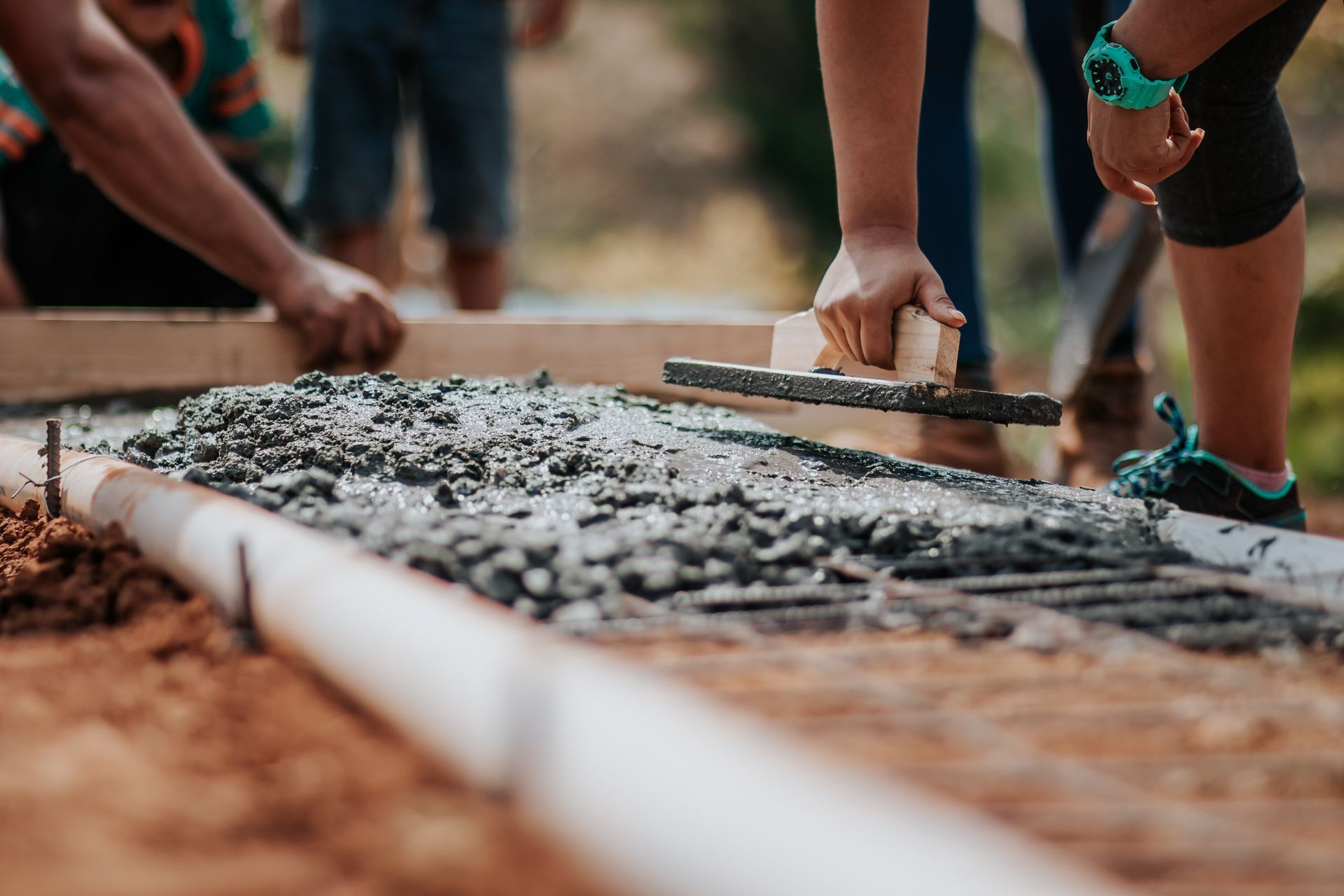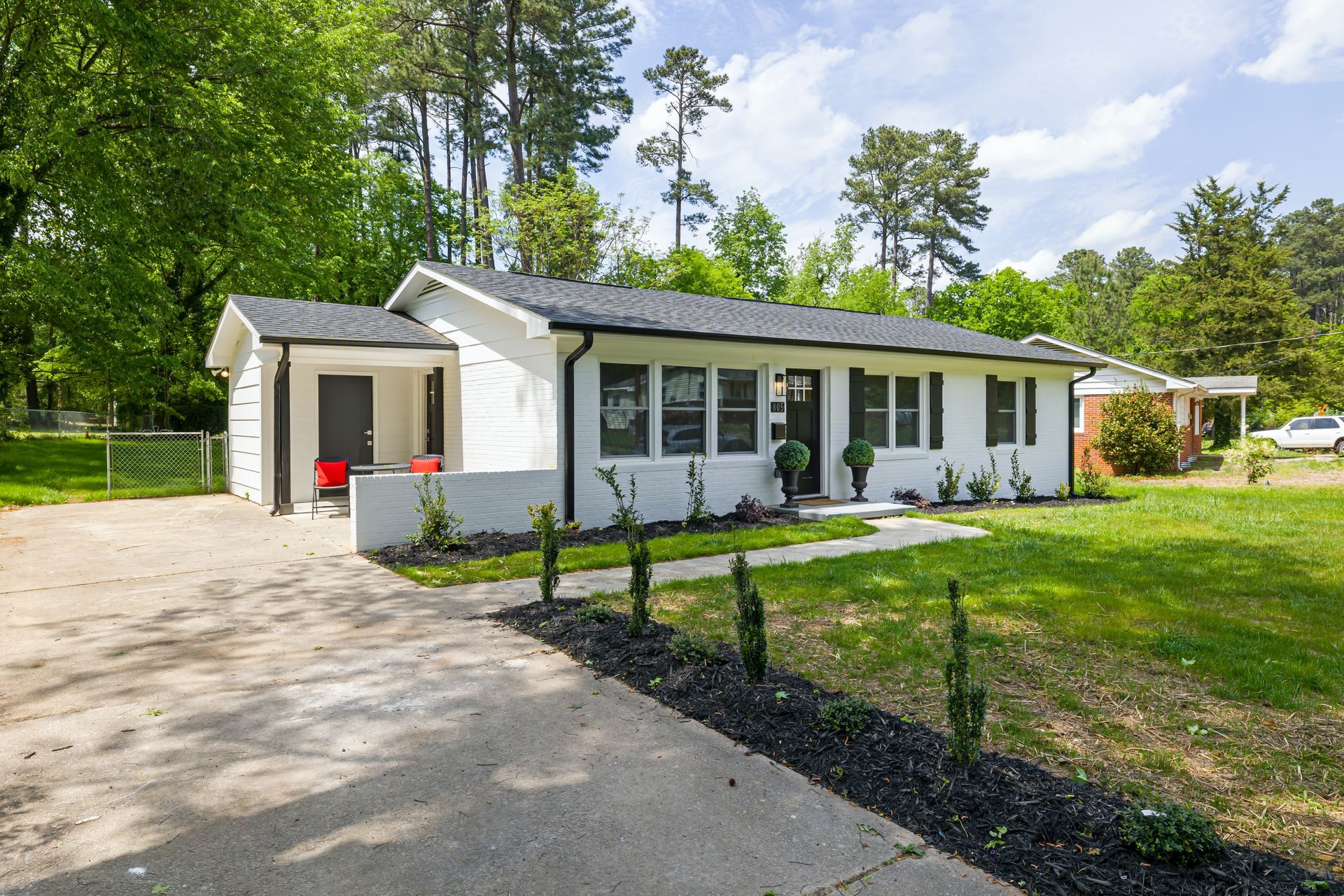Maple Ridge Concrete and Paving
Signs Your Concrete Driveway Needs Repair:
Preventing Damage With Concrete Contractors Maple Ridge
Your driveway is more than just a functional part of your property; it's an essential element contributing to your home's overall curb appeal and value. A concrete driveway is a popular choice among the various types of driveways available due to its durability, longevity, and low maintenance requirements.
Over time, even the most well-built
concrete driveways can develop signs of wear and tear, indicating the need for repairs. It is important to know when your concrete driveway needs repair to maintain its structural integrity, prevent further damage, and ensure a safe and visually appealing entrance to your property.
Signs That You Need A Concrete Driveway Repair
Cracks
Cracks in your concrete driveway are a common issue due to various factors. Temperature fluctuations, especially during freezing and thawing cycles, can cause the concrete to contract, forming cracks. Additionally, heavy loads, such as vehicles or equipment, can stress the surface, resulting in cracking.
Poorly constructed driveways or inadequate reinforcement can also contribute to crack formation. Initially, you may notice small hairline cracks, but if left unattended, they can widen and deepen, allowing water penetration and further deterioration. Sealing or filling the cracks early can prevent them from spreading and protect the underlying layers of the driveway.
Potholes
Potholes are another visible sign that your concrete driveway requires repair. These concave depressions can develop due to several factors, including water infiltration, poor drainage, and the repetitive stress of heavy vehicles. When water seeps into the underlying layers of the driveway, it weakens the supporting structure and causes the formation of voids.
As vehicles pass over these weakened areas, the surface layer collapses, resulting in potholes. Potholes not only affect the aesthetics of your driveway but can also cause damage to vehicles and pose safety hazards. Repairing potholes typically involves:
- Removing the damaged section.
- Compacting the sub-base.
- Applying new concrete or suitable patching material to restore the surface.
Uneven or Sunken Areas
Over time, you may notice that certain sections of your concrete driveway become uneven or sink, creating an unlevel surface. This can occur due to soil erosion, inadequate compaction during installation, or the presence of water. For example, if the subbase of the driveway is not properly compacted, it can gradually settle, leading to depressions or uneven areas.
Similarly, water accumulation or poor drainage can erode the subbase, causing sections of the driveway to sink. Uneven areas not only affect the visual appeal of your driveway but also pose tripping hazards and can exacerbate water pooling issues. Addressing these problems may involve levelling the surface by adding new concrete or utilizing specialized techniques to stabilize the underlying layers.
Spalling or Scaling
Spalling and scaling refer to the deterioration of the concrete surface, where small chips, flakes, or patches of concrete break away. These issues are often caused by moisture penetration into the concrete, which freezes and expands, leading to the separation of the surface layer. Using improper deicing chemicals, such as those containing high chloride levels, can accelerate the process.
Poor curing practices during installation or exposure to harsh weather conditions can also contribute to spalling and scaling. If left unaddressed, these surface defects can expose the underlying concrete to further damage and reduce the overall lifespan of the driveway. Repairing spalled or scaled areas typically involves removing the damaged portions, applying a suitable resurfacing material, and implementing protective measures, such as sealants or coatings, to prevent future damage.
Fading or Discoloration
Concrete driveways can lose their original colour and appear faded or discoloured. This is often a result of prolonged exposure to sunlight, UV radiation, and weather elements. The pigments and surface coatings on the concrete can gradually break down, causing the colour to fade. Additionally, certain cleaning agents or chemicals can contribute to discoloration. While fading or discoloration alone may not indicate significant structural issues, they can detract from the overall appearance of your driveway. Applying a fresh coat of concrete sealer or stain can help restore the colour and protect the surface from further fading.
Drainage Issues
Proper drainage is essential for a well-functioning concrete driveway. It could indicate underlying issues if you notice water pooling or inadequate drainage after rainfall or when using a hose. Improper slopes, clogged or damaged drainage channels, or ineffective water dispersal mechanisms can cause poor drainage. When water accumulates on the driveway's surface or seeps into the underlying layers, it can lead to damage such as erosion, cracking, or sinking. Addressing drainage problems may involve:
- Adjusting the driveway's slope.
- Installing or repairing drainage systems.
- Incorporating permeable paving solutions to allow water to infiltrate the ground.

Concrete Driveway Contractor Tips On Preventing Concrete Damage
Preventing concrete driveway damage involves proactive measures and regular maintenance. Here are some key steps to help you prevent damage and prolong the life of your concrete driveway:
Proper Installation
The first step in preventing concrete driveway damage is ensuring it is installed correctly. Hire a professional, experienced concrete contractor who understands the proper techniques and principal practices for driveway installations. They will assess the site conditions, provide appropriate excavation and compaction of the sub-base, and ensure proper thickness and reinforcement for the concrete. A well-installed driveway with a solid foundation is less likely to experience issues such as cracking or sinking.
Reinforcement
Adding reinforcement to your concrete driveway can significantly enhance its strength and durability. Steel rebar or fibre mesh can be incorporated into the concrete mix to help distribute the load and prevent cracking. Reinforcement helps to withstand heavy loads, temperature fluctuations, and other stressors that can lead to damage. Consult with your concrete contractor to determine the appropriate reinforcement method for your driveway requirements.
Control Joints
Control joints are planned concrete cuts or grooves that allow for controlled cracking. They are strategically placed to create weaker areas where cracks can occur, directing them along predetermined lines. Control joints help prevent random cracking that can compromise the driveway's integrity by providing designated areas for the concrete to expand and contract. Proper placement and maintenance of control joints are crucial to ensure their effectiveness in preventing unsightly and potentially damaging cracks.
Proper Drainage
Adequate drainage is essential for preventing water-related damage to your concrete driveway. Improper slope or lack of proper drainage channels can result in water pooling on the surface or seeping into the underlying layers, leading to erosion, cracking, and other issues. Ensure your driveway has a sufficient slope to allow water to flow away from the surface and towards designated drainage areas. Clear any debris or blockages from drainage channels regularly to ensure they function properly.
Avoid Heavy Loads and Sharp Objects
Excessive weight can stress the concrete and lead to cracking or sinking. Avoid parking heavy vehicles, such as trucks or RVs, on your driveway for extended periods, as they can exceed the design load. Similarly, placing heavy objects like dumpsters or machinery for prolonged periods can cause damage. Additionally, dragging sharp objects like snow shovels or metal furniture across the surface can scratch or chip the concrete. Use caution when handling heavy items, and consider using protective measures like plywood or rubber mats to distribute the load.
Seal the Concrete
Applying a concrete sealer effectively protects the surface from moisture, stains, and chemical damage. Sealers create a protective barrier that helps repel water, oil, and other substances that can penetrate the concrete and cause deterioration. Regularly applying a high-quality concrete sealer following the manufacturer's instructions can extend the life of your driveway and keep it looking fresh.
Regular Cleaning
It is important to maintain the appearance and condition of your concrete driveway. Dirt, debris, and organic materials like leaves or grass can hold moisture and lead to stains or discoloration. Use a pressure washer to remove debris and rinse away dirt. Use a mild detergent or specialized concrete cleaner following the manufacturer's instructions for tougher stains. Avoiding the use of abrasive cleaners that can damage the concrete surface.
Prompt Repairs
Address any signs of damage or wear on your concrete driveway as soon as they are noticed. Cracks, potholes, or areas of spalling should be repaired promptly to prevent further deterioration. Contact a professional concrete contractor who can assess the damage and recommend appropriate repair methods. Timely repairs can prevent small issues from escalating into more significant problems and help maintain the structural integrity of your driveway.
Avoid Deicing Chemicals
During winter, deicing products are commonly used to melt ice and snow on driveways. However, some deicers containing chloride salts can cause damage to the concrete. They can penetrate the surface, corrode the reinforcing materials, and lead to surface scaling or spalling. Instead, opt for non-chloride deicers or alternative methods like sand for traction. If you need to use deicers, select products specifically designed for use on concrete surfaces and follow the instructions carefully.
Regular Inspections
Regularly inspect your concrete driveway to identify any signs of damage or wear. Walk along the surface and look for cracks, potholes, uneven areas, or surface deterioration. Check for any changes in the appearance or functionality of the driveway. Regular inspections allow you to detect issues early on and address them before they worsen. If you notice any concerning signs, consult a professional concrete contractor for a thorough assessment and appropriate actions.
What Concrete Driveways Near You Do
Concrete contractor dedicated to providing exceptional services for concrete driveways in the local area. They have a team of seasoned and skilled professionals with specialized knowledge in installing, repairing, and maintaining concrete driveways. Whether you need a new driveway constructed or an existing one repaired, they have the expertise and resources to deliver outstanding results.
Concrete Driveway Contractor is committed to customer satisfaction, ensuring that each project is tailored to meet its client's unique needs and preferences. They use high-quality materials and employ industry-leading techniques to ensure the durability, functionality, and aesthetic appeal of every concrete driveway they work on.

Enhance Your Property's Value with a Well-Maintained Concrete Driveway
Maintaining a strong and visually appealing concrete driveway can greatly improve your property's overall appearance and value. You save costs and ensure durability by preventing damage through proper installation, maintenance, and repairs. Plus, it provides a safe surface for vehicles and pedestrians, reducing the risk of accidents.
Hire reliable concrete contractors in
Maple Ridge Concrete and Paving for your driveway needs. With our exceptional craftsmanship, timely project completion, and competitive pricing, we are dedicated to bringing your concrete projects to life. Contact us today to get started!
